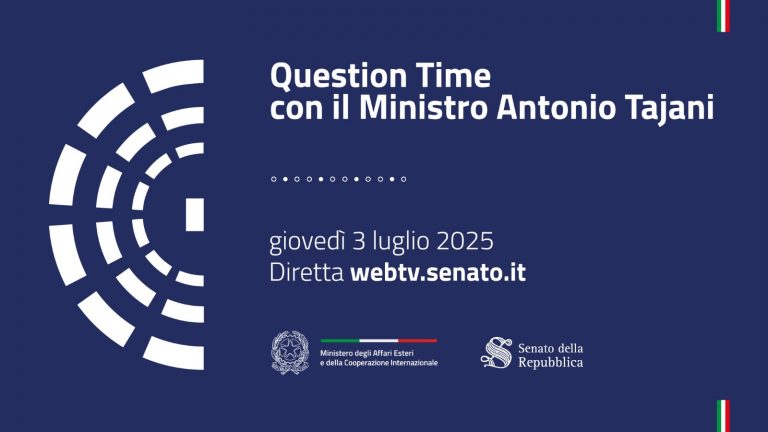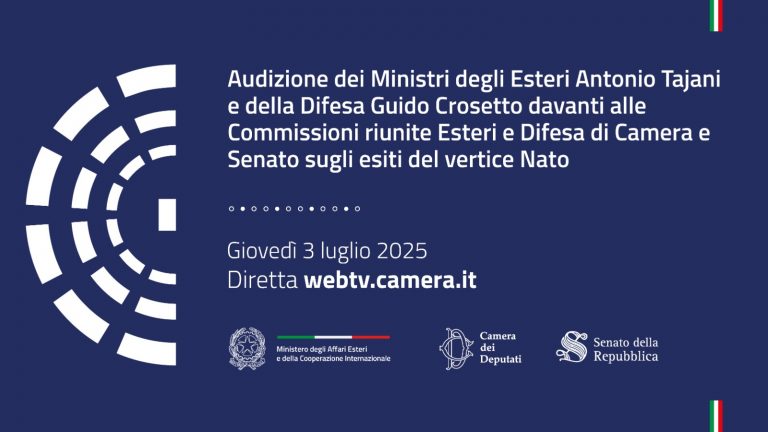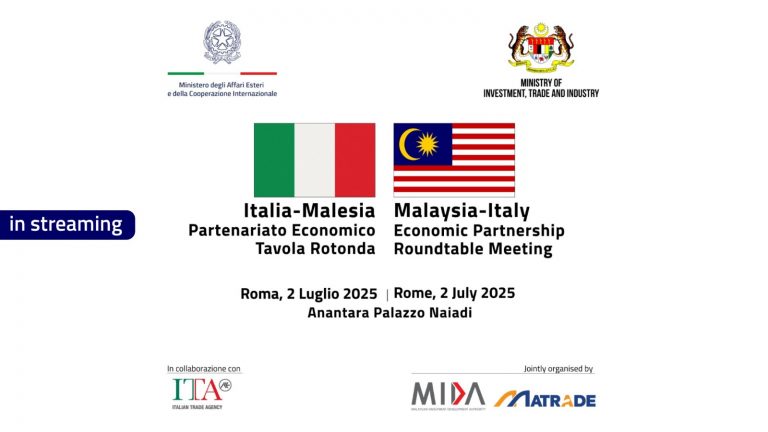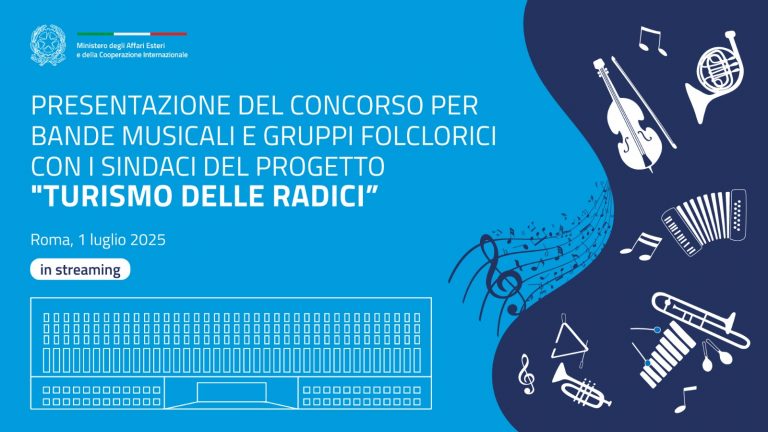As to taxation, Minister Tajani makes a distinction: ‘We have always been in favour of tax peace and I am very glad that the League has chosen to follow our policy line on this issue, but Forza Italia is against any type of amnesty”. As to justice, Minister Tajani has no doubt: “We are with Nordio. Both with Nordio, the Minister, and with Nordio, the jurist”. As to wiretapping, Tajani has a stance with few nuances: “Investigations must be secret until the preliminary hearing: a criminally irrelevant wiretap that is not reported in newspapers is not a defeat for the freedom of the press, but a victory for the protection of the rule of law”. As to immigration, much pride is expressed: “Following the pro-European approach means coming to terms with reality and following reality will lead to significant results”. As to demography, an appeal is launched: “The proposal of my colleague Giancarlo Giorgetti – zero taxes, or almost zero, for parents who have at least two children, as a measure to tackle the dramatic fall in birth rate – is an idea that deserves to be pursued: ensuring young people’s freedom to be able to have children is a moral duty for those who care about this issue”. As to war, awareness is shown: “The chaos over wheat is yet another demonstration of the fact that Vladimir Putin has slipped into a path from which he cannot get out. I still think that the only power that today can have the strength to push Putin towards a different trajectory from the present one is China, and on this front something is to be expected”. With reference to his own party, Forza Italia, he has a clear belief: “We are loyal, but not complacent. Complacency is a form of psychological subservience. Loyalty is a form of friendship. Do you prefer a friend or a flatterer?”.
Antonio Tajani receives us on the third floor of Palazzo Chigi. The Deputy Prime Minister’s office is thirty square metres. Two tables, a computer, an armchair, many dossiers kept in a cream-coloured folder. On the white wall there is only a photo of President Sergio Mattarella. Antonio Tajani is Secretary of Forza Italia, Foreign Minister, Deputy Prime Minister, Vice-President of the European People’s Party. In this brief conversation with the newspaper Il Foglio he provides a 360-degree overview. With short answers. With some lists. With a few surprises. About Italy, the government, the economy, Europe, justice, immigration. Minister Tajani says he is satisfied with the agreement reached by the European Union in Tunisia. There are many “ifs”, many “buts”, many limits but he says that the direction “is the right one”. The reason lies in the fact that “Europe, even when it comes to migrants, is not an adversary of which to be wary, but an ally with whom to create protection”.
As to immigration, Minister Tajani takes a step forward and answers two further questions in a non-obvious way. The first concerns the relationship with a law that the government may soon change. Last Friday, unexpectedly, Interior Minister Matteo Piantedosi said the following at an event organised by Fratelli d’Italia in Rome: “The Bossi-Fini law was nothing more than a regulatory operation to reform the Turco-Napolitano law that provided for the same cornerstones. The Bossi-Fini law distinguished itself, inter alia, for the biggest amnesty and regularisation in history, and it was precisely on the basis of that experience that it proved ineffective and led those who came after, like us, to work to create regular entry channels”. We then ask Tajani if he agrees and he says yes: ‘Laws are not eternal. They can be improved. If there is a law that can be improved, this government will try to do so”. The second question concerns the relationship with NGOs. In this respect, we point out to Tajani that since the Cutro Decree the government has often collaborated with NGOs in the Mediterranean to rescue migrants, including Open Arms, the famous NGO that sent Salvini to trial.
Tajani is not embarrassed and recalls the government’s action: “The government is not the enemy of NGOs. Giving rules means setting limits on behaviour. With the Cutro Decree we did so. If you give rules and the rules are respected, you can collaborate. If NGOs comply with these rules it is a step forward for everyone. This is what should also be done on justice”. In what sense, Minister? “New rules must be created to strengthen our rule of law. I am thinking of the separation of careers. I am thinking of the rules governing wiretapping. The perfect image to describe what justice should be is the two-plate scale. The two plates, namely prosecution and defence, should be on the same level. In the middle there should be an impartial judge, not squeezed between the two plates. The separation of careers will serve this purpose. It will serve to give more independence to the judge – and if you only knew how many judges are asking the government to go down this road – and to provide more guarantees to citizens. Having a judicial system where the relevance given to the prosecution is greater than the one given to defence is a huge problem”. Tajani adds that wiretapping also has something to do with it. “Wiretapping – I am thinking of irrelevant ones – is an ingredient of the trial by media. The trial by media turns anyone who ends up being trapped within this mechanism into guilty until proven innocent. Stopping feeding this drift is a way to honour our Constitution.”
But is the journalist who publishes an irrelevant wiretap doing his job properly or not? “Before the journalist, the problem is who chooses to transcribe an irrelevant wiretap. But here, there is obviously also an issue of professional ethics: if a wiretap is blatantly slanderous, the journalist’s professional ethics should suggest not publishing that wiretap. The reporter’s job is crucial for our country. It cannot become a letterbox. In this sense, Minister Nordio’s reform goes in the right direction: having secret investigations until the indictment means taking a step towards a season in which an accusation is not enough to be considered guilty until proven innocent.” But thinking about the subject of external complicity and conspiracy, is Minister Nordio right to talk also about topics that do not concern government activity? “I see no scandal in having a Minister who makes his knowledge and professionalism available to counterparts. I know that we live in the society of screenshots, where anything can be decontextualised and therefore used out of context to generate controversy, but the critical attention Nordio received seems to me to be instrumental”. Have his words on the AfD and Le Pen also been decontextualised, or does what we have read on this topic correspond to his thoughts? “I would like to be clear on this point. Europe is not Italy. After the next elections, having in Europe a majority that faithfully reflects the equilibria and the situation prevailing in our country is against the numbers and also against reality”. Reality? “Yes. It is not real to think that there is anyone in Europe, including the centre-right, that could one day rule with Le Pen or the AfD. If you want to avoid the next European majority being dominated by Socialists, I think it might be useful to think about a scenario similar to the one that led me to be President of the European Parliament years ago, i.e. uniting Conservatives and Liberals. This is not a matter of raising polemics. It is a matter of observing facts”. Need I remind you that Le Pen’s party and the AfD are allied in Europe with the party of your fellow Deputy Prime Minister, Matteo Salvini? “I do not see a problem in Europe with Salvini, and with the League. On the contrary. I see a problem with the AfD and with Le Pen”. Do you see other problems in Europe? “Yes.” For example? “I have some concerns about the ECB”. Again? “Yes. We have great respect for the ECB and reaffirm its independence, but it is also legitimate to make some considerations. As to the choices made on fighting inflation – which comes from the cost of raw materials, whereas in the USA it comes from a very favourable economic situation – I think there is an underestimated problem. I am not sure that the ECB’s action is having a positive effect on the economy. I am afraid that it might frighten people, reduce consumption and discourage investment. I say so as a pro-European, with absolute respect, but it is an issue we cannot fail to address”. You said to be loyal but not complacent. Can we say that being loyal also means saying that the government struggles to find harmony on many issues, often showing great limits and uncertain steps? “We can always improve. We can do better. But there is dialogue within the government. There is an exchange of views. There is collaboration between Ministers. Those belonging to Forza Italia are constructive and cooperative”. And what about the others? “There is an excellent relationship between Ministers. Finding agreement is not difficult. But I am primarily answerable for the Forza Italia Ministers. With specific reference to Forza Italia, I must tell you that when the other parties come close to our ideas I am not worried about us but I am happy for the government. The fact of being rooted in reality is an added value and I am sure voters will understand this”.





